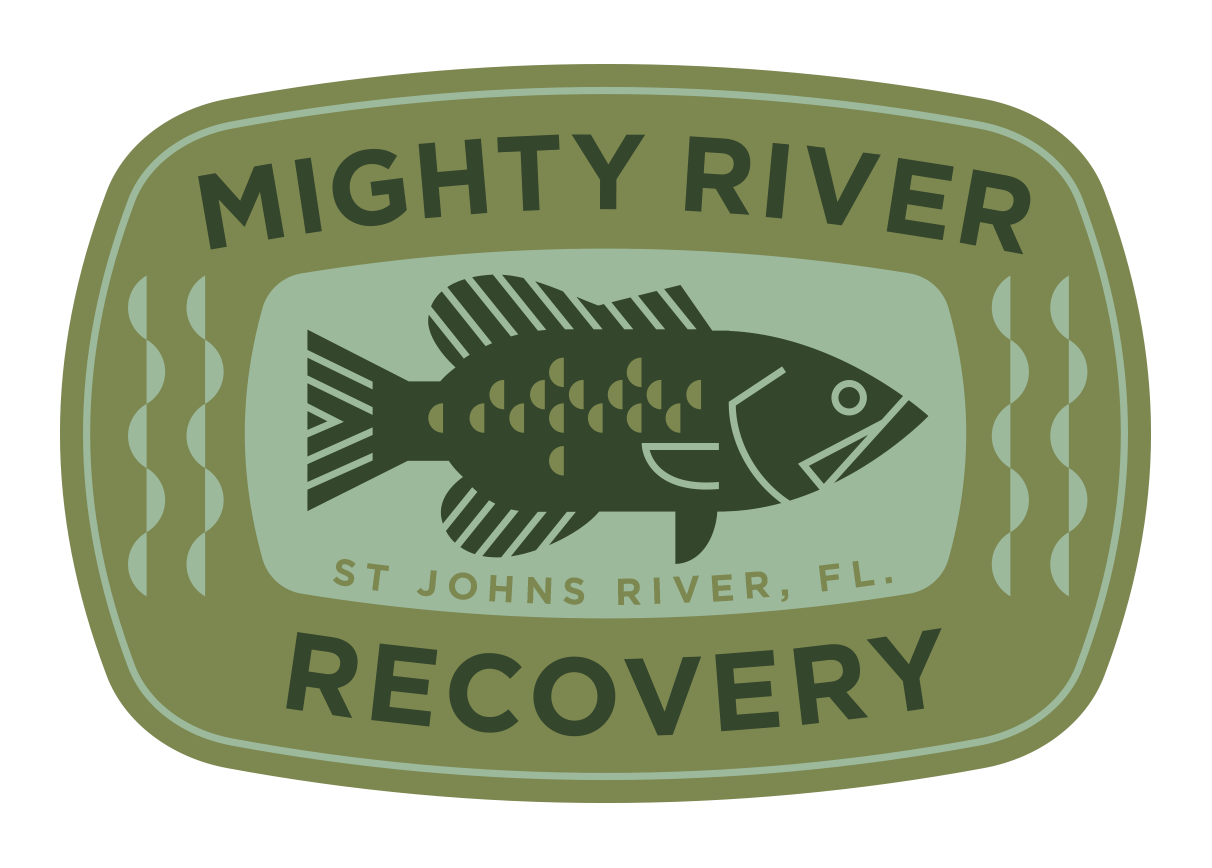
We’re a diverse group of outdoor lovers with one thing in common: We want better for the St. Johns River.
The idea behind Mighty River Recovery.
Everywhere we turned, something was missing. Just one generation ago, the towns along the St. Johns River were bustling with tourism. Anglers from across the nation came to experience the “Bass Fishing Capital of the World.” Boat ramps were crowded, fish camps filled with reservations and convenience stores opened at 6AM. But that was all gone.
The bait shops were boarded up, most of the fishing guides out of business. Those that remained found themselves driving to more productive waters, away from the shores of the St. Johns River. Tourism focused on other things: skydiving, beach vacations and manatees.
Along with declining fishing came a disinterest in much of the St. Johns River. An accepted new norm. Since the beginning of Florida tourism - before the Civil War - peopled flocked to the St. Johns to go bass fishing. Yet, in just a few decades, it had declined dramatically.
Our founder, Joe Balog, is a prominent media member in the fishing industry. This, combined with a college degree in Fisheries Science, put him on the inside track on fish management issues. After moving to DeLand in 2015, Balog became involved with a number of government agencies in charge of managing Florida’s resources.
There, Balog learned of the challenges in dealing with Florida’s expanding population and unique environment. Invasive species can run out of control, and many of our waterways have been manipulated in ways detrimental to fish and wildlife populations.
At the same time, other Florida waters were experiencing pro-active management and a rebirth of sorts, cleaning up previous messes. Bass anglers were flocking to these locales while the St. Johns River - the state’s largest freshwater resource - remained in the shadows. Scientific data confirmed: catch rates for bass were the lowest in recorded history for the St. Johns River. Who would want to go there for vacation? Fishing guides and tourism officials could only try so hard.
Recent habitat restoration projects - most notably aquatic plantings around decimated Lake George - provide a ray of hope. But so much more needs to be done. Little consideration is being given to altering herbicide practices (spraying) in order to relieve this overstressed resource. Explosion of exotic species like tilapia and armored catfish has not been addressed. Urbanization continues unchallenged in the watershed. Anglers - and their dollars - go elsewhere as catch rates remain poor. Meanwhile, suggestions for change fall on deaf ears.
We decided to organize. Joining forces provided us a diversity in both expertise and opinion. A fish camp operator joined a media professional, added a tourism guru, a paddlesports veteran, old-school fishing captain and modern biologist. Together, we formed Mighty River Recovery to assist in rehab efforts while pushing the envelope.
We saw the need to do something NOW, but also plan for the future. Much of the St. Johns River is bordered by protected land, providing one of the last remaining pieces of Old Florida. With the continued craze to develop, we envision a day when our beloved St. Johns corridor is one of the last wild places. Stresses on the river will be immense. We must organize now to curb further decline and prevent catastrophe.
We want better for the St. Johns River, don’t you? We want our piece of wild Florida to be protected from the results of raging sprawl, don’t you? We want a group representing the outdoor enthusiasts who live and breathe the St. Johns experience.
Don’t you?
Why are millions of Florida residents living so close to the state’s largest freshwater resource and not represented properly in it’s plan?
Become part of the solution. Join us.
There has to be a better way.
Why are we continuing to accept the proven decline of our resources?
Manatee eating floating vegetation in the St. Johns River. This same vegetation - comprised of 99% native plants - will be treated and eradicated just days later.
